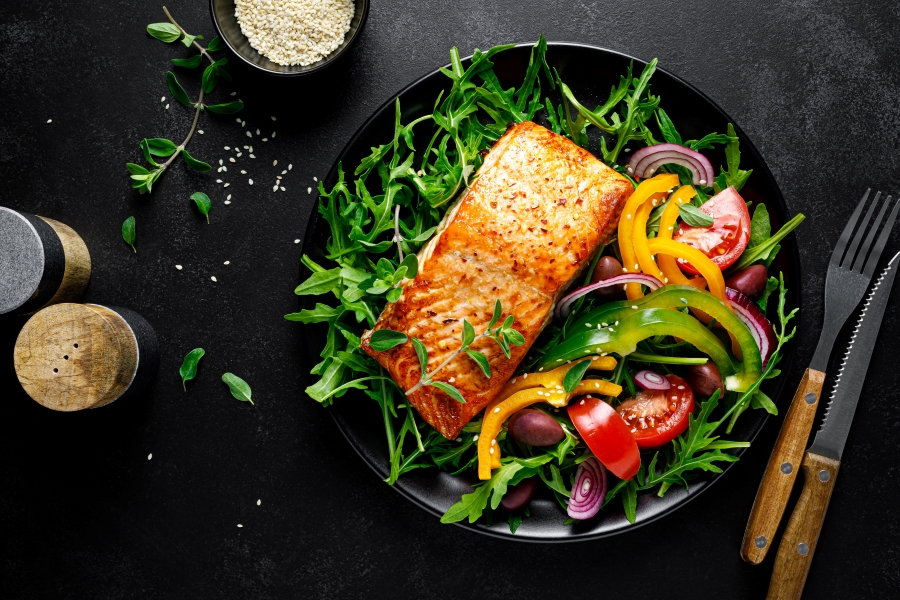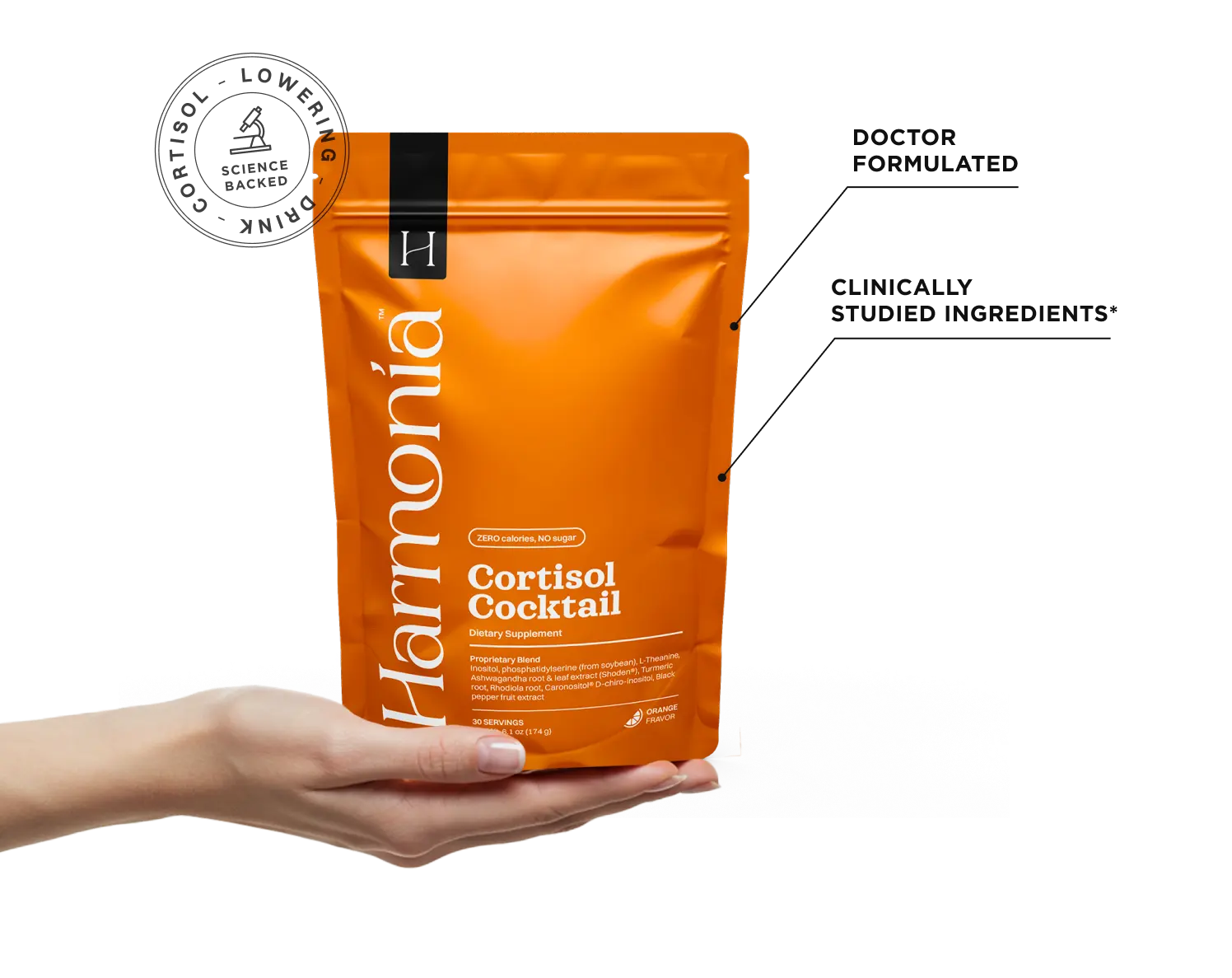Stress is a part of modern life - but too much stress can wreak havoc on your body. At the center of this stress response is cortisol, often called the “stress hormone.” When cortisol levels stay elevated for too long, it can lead to anxiety, poor sleep, hormonal imbalances, and even weight gain.
The good news? You can make a difference with the right diet to lower cortisol. By eating specific foods and avoiding others, you can naturally support your body’s stress response, balance hormones, and feel calmer.
What is Cortisol and Why Does it Matter?
Cortisol is a hormone released by your adrenal glands in response to stress. In short bursts, it’s helpful: it wakes you up in the morning, gives you energy in stressful situations, and helps regulate your metabolism. But when cortisol stays elevated due to chronic stress, it becomes harmful.
Symptoms of high cortisol include:
- Anxiety or constant tension.
- Weight gain, especially around the belly.
- Cravings for sugar and carbs.
- Fatigue despite getting enough sleep.
- Irregular menstrual cycles or hormonal imbalances.
- Difficulty focusing, brain fog, and irritability.
If these sound familiar, it’s time to consider a diet for high cortisol and lifestyle changes that help bring your stress hormones back into balance.
How Does Diet Influence Cortisol Levels?
Food directly affects cortisol production in several ways:
- Stabilizing blood sugar: Balanced meals prevent cortisol spikes caused by low blood sugar.
- Reducing inflammation: Anti-inflammatory foods calm the stress response.
- Supplying adaptogens and nutrients: Certain compounds (like ashwagandha, magnesium, B vitamins) support healthy cortisol regulation.
On the other hand, foods high in sugar, caffeine, and processed ingredients trigger cortisol, keeping your body in “fight or flight” mode.
That’s why building a cortisol-balanced diet is so important for long-term well-being.
10 Best Foods to Lower Cortisol
When building a cortisol-lowering diet, the right foods provide nutrients that calm your nervous system, regulate blood sugar, and reduce inflammation. Here’s a closer look at the 10 best foods to lower cortisol - and why they work.
1. Leafy Greens (Spinach, Kale, Swiss Chard)
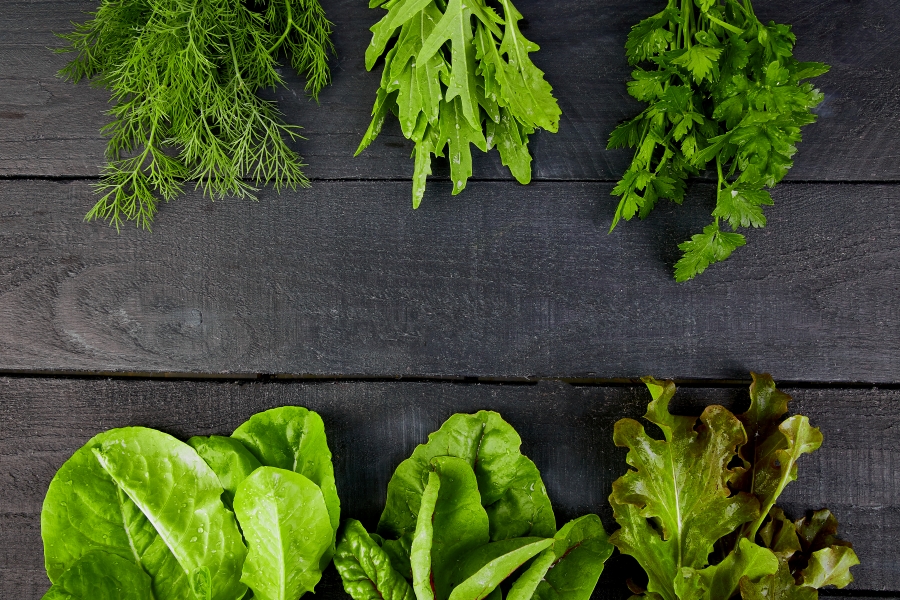
Leafy greens are rich in magnesium, a mineral that plays a crucial role in controlling cortisol levels. Magnesium helps your muscles relax, reduces feelings of anxiety, and supports deeper sleep.
Unfortunately, many people are magnesium-deficient, which can keep cortisol elevated. Adding a daily serving of spinach in smoothies, sautéed kale with dinner, or a fresh salad helps your body restore balance naturally.
2. Fatty Fish (Salmon, Mackerel, Sardines)
Fatty fish are packed with omega-3 fatty acids, which have been shown to reduce inflammation and balance stress hormones. High cortisol is often linked with systemic inflammation, so adding omega-3s to your diet provides powerful protection.
Studies show that omega-3s also help reduce symptoms of anxiety and improve mood, making salmon or sardines an ideal part of a diet to reduce cortisol.
3. Whole Grains (Oats, Quinoa, Brown Rice)
Refined carbs cause blood sugar crashes, which force your body to release cortisol. Whole grains, on the other hand, provide complex carbohydrates that digest slowly and stabilize blood sugar. Oats at breakfast, quinoa bowls for lunch, or brown rice with dinner are excellent options to keep energy steady and prevent cortisol spikes throughout the day.
4. Berries (Blueberries, Strawberries, Raspberries)
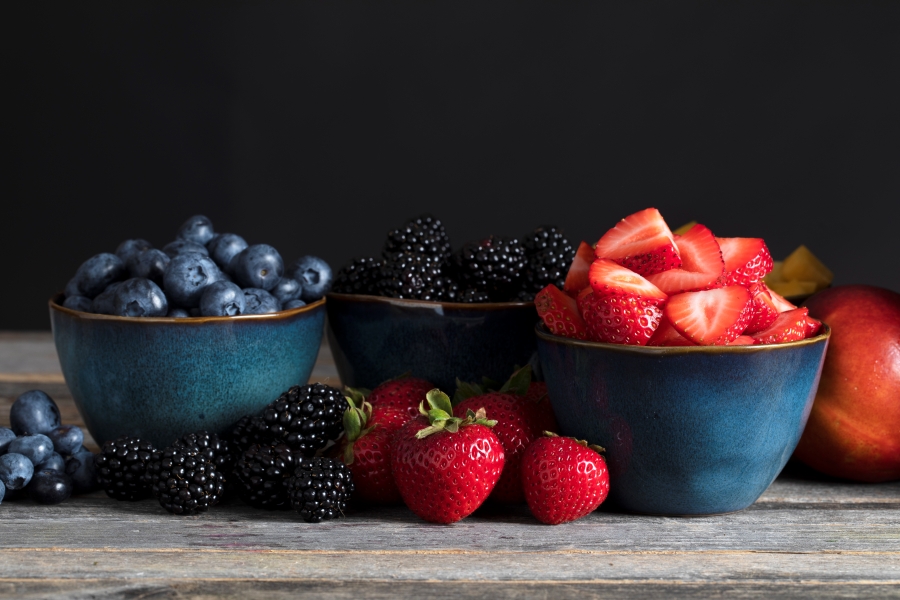
Berries are loaded with antioxidants, which help your body repair damage caused by stress. When cortisol is high, oxidative stress increases in the body - antioxidants help neutralize it.
Blueberries in particular have been shown to improve memory and cognitive function, which often suffer when cortisol is elevated. A handful of berries makes an easy snack or a colorful addition to yogurt and oatmeal.
5. Nuts & Seeds (Almonds, Walnuts, Pumpkin Seeds)
Nuts and seeds are rich in healthy fats, protein, and minerals like magnesium and zinc - all of which support adrenal health.
Almonds provide vitamin E, which helps combat stress-related inflammation. Walnuts are a plant-based source of omega-3s, while pumpkin seeds are a powerhouse of magnesium.
Eating a small handful of mixed nuts is a simple way to keep cortisol under control while boosting satiety.
6. Avocados
Avocados are one of the best foods for hormonal balance. They are high in potassium, B vitamins, and monounsaturated fats, which support heart health and reduce blood pressure. Potassium specifically helps regulate blood pressure spikes that occur when cortisol is elevated.
The creamy texture of avocado also makes it a satisfying addition to a cortisol-lowering diet - whether mashed on toast, added to salads, or blended into smoothies.
7. Herbal Teas (Chamomile, Green Tea, Ashwagandha Tea)
Unlike coffee, which can overstimulate the stress response, herbal teas are naturally calming.
Chamomile has been studied for its ability to reduce anxiety and promote restful sleep. Green tea contains L-theanine, an amino acid that increases alpha brain waves and creates a state of calm focus.
Ashwagandha tea, made from an adaptogenic herb, directly supports cortisol regulation and resilience to stress. A warm cup in the evening can be part of a daily cortisol reducing diet ritual.
8. Turmeric
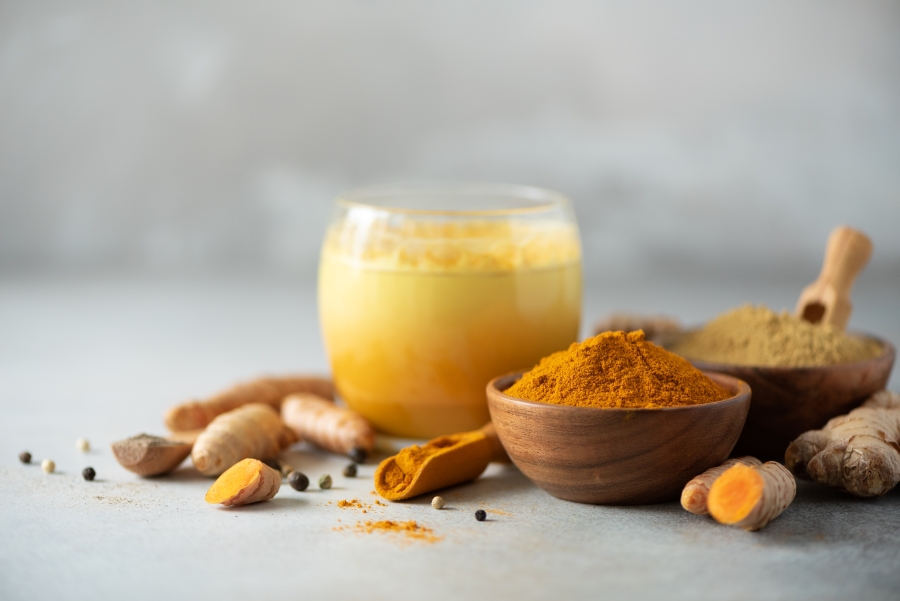
This golden spice contains curcumin, a compound with potent anti-inflammatory and antioxidant effects. Chronic stress and high cortisol fuel inflammation, which curcumin helps counteract.
Turmeric also supports healthy insulin sensitivity, which stabilizes blood sugar - another factor that keeps cortisol balanced.
You can add turmeric to curries, golden milk, or even smoothies for daily support. Pair it with black pepper to boost absorption.
9. Dark Chocolate (in Moderation)
Yes, chocolate can be part of an anti-cortisol diet - if it’s dark chocolate (70% cacao or higher). Dark chocolate is rich in flavonoids, antioxidants that lower stress hormones and improve mood.
Small amounts of dark chocolate have been linked to reduced stress perception and improved heart health. Just be mindful of portion sizes, since too much sugar can have the opposite effect.
10. Legumes (Lentils, Chickpeas, Black Beans)
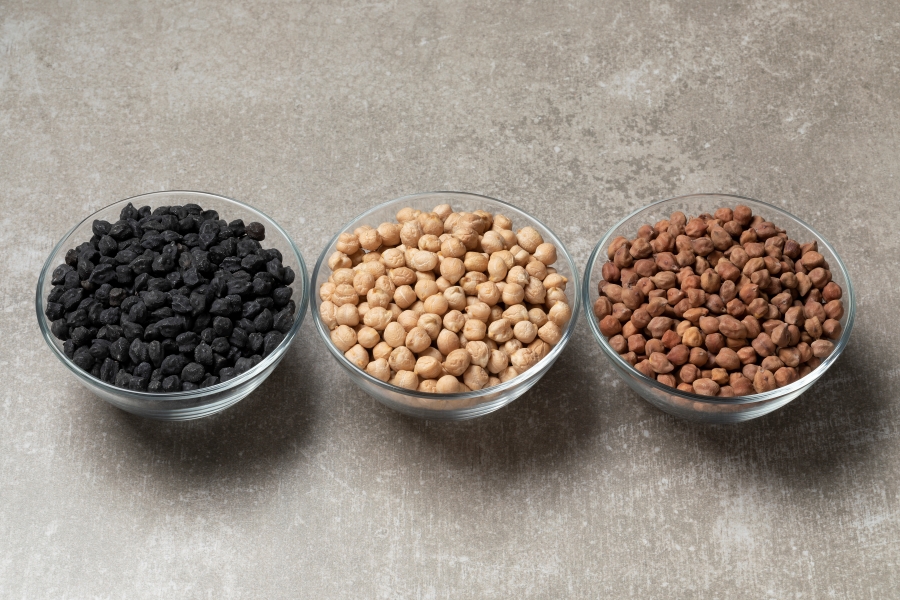
Legumes are an excellent source of plant-based protein, fiber, and B vitamins. These nutrients help regulate blood sugar, improve gut health, and support stable energy levels - all of which reduce cortisol spikes.
The high fiber content also helps balance digestion, which is often disrupted when cortisol is elevated. Lentil soups, hummus, or black bean tacos are delicious ways to incorporate legumes into your daily meals.
7 Foods to Avoid: Cortisol Triggers
Just as important as eating the right foods is avoiding the wrong ones. Certain ingredients can push your stress response into overdrive, keeping cortisol levels high and making it harder for your body to recover.
If you’re working on a cortisol-lowering diet, try to limit these foods as much as possible.
1. Refined Sugars
Sugar is one of the biggest culprits when it comes to cortisol spikes.
When you eat foods high in refined sugar - like candy, pastries, or soda - your blood sugar rises quickly, then crashes just as fast. These crashes trigger the release of cortisol to restore balance, keeping your stress hormones elevated.
Over time, this can lead to insulin resistance, weight gain (especially around the belly), and energy crashes that leave you craving even more sugar.
2. Excess Caffeine
A morning cup of coffee can be fine, but too much caffeine stimulates your adrenal glands to release more cortisol and adrenaline. This creates a “wired but tired” feeling - you feel jittery, then crash later in the day.
Excess caffeine also disrupts sleep quality, which is directly tied to cortisol regulation. If you struggle with high cortisol symptoms, swapping your afternoon coffee for herbal tea is a smarter choice.
3. Alcohol

Alcohol is often used as a way to “relax,” but in reality, it disrupts sleep and raises cortisol. Even moderate drinking interferes with deep, restorative sleep cycles, leaving you more stressed and tired the next day.
Alcohol also impacts blood sugar regulation and liver function, both of which are linked to cortisol control. Over time, this combination can worsen anxiety, cravings, and hormonal imbalances.
4. Processed Foods
Highly processed foods - think fast food, packaged snacks, frozen dinners - are often loaded with refined carbs, unhealthy fats, and additives. These foods promote inflammation, which keeps cortisol elevated.
They also lack the vitamins and minerals your body needs to cope with stress, creating nutrient deficiencies that make cortisol regulation even harder. A cortisol detox diet works best when processed foods are minimized or eliminated.
5. Fried and Fast Foods
Fried foods are high in trans fats and refined oils, which strain the cardiovascular system and promote inflammation. Eating them regularly puts stress on your digestive and metabolic systems, prompting higher cortisol output.
They also contribute to weight gain, particularly belly fat - one of the classic signs of high cortisol diet imbalances.
6. White Bread and Refined Grains
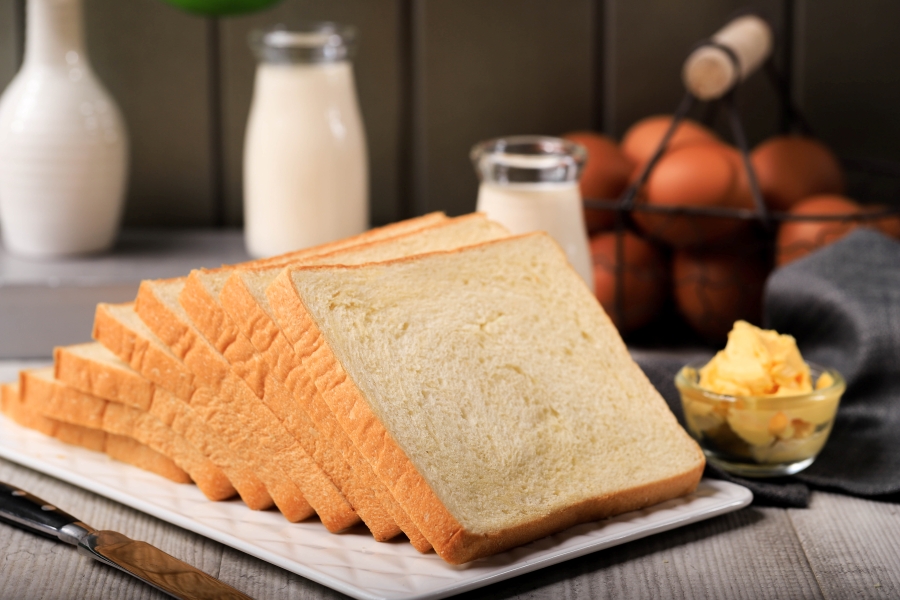
Refined grains (white bread, white rice, pasta made with white flour) act similarly to sugar in the body. They digest quickly, cause rapid blood sugar spikes, and then lead to cortisol-driven crashes. Replacing them with whole grains like quinoa, oats, or brown rice is a better choice for keeping cortisol stable.
7. Energy Drinks
Energy drinks combine high caffeine and high sugar, making them one of the worst offenders for cortisol regulation.
They provide a short-term boost, but the body responds with a surge of cortisol and adrenaline. This leaves you more exhausted in the long run, disrupts sleep, and strains your adrenal system.
If you’re building a cortisol-reducing diet, cutting out energy drinks is a must.
Harmonia: The Smart Solution for a Cortisol-Lowering Diet
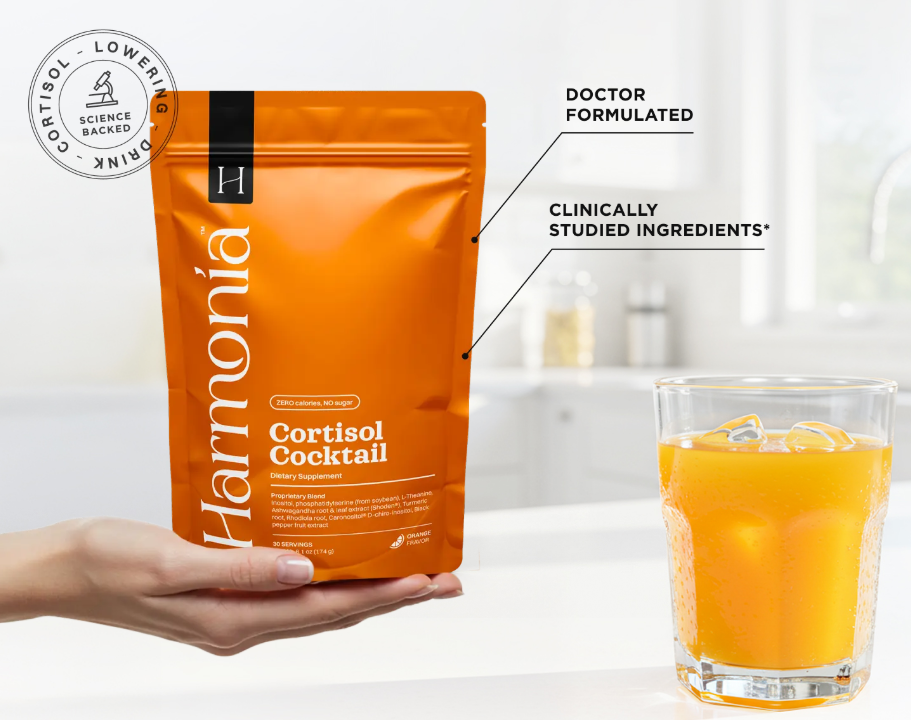
Following a cortisol-lowering diet can make a dramatic difference in how you feel, but it isn’t always easy to maintain. Between busy schedules, cravings, and the simple reality of modern life, it can be difficult to get enough of the right nutrients every single day.
Even if you eat well most of the time, gaps still happen - and those gaps can keep cortisol levels higher than they should be.
Harmonia was created to bridge this challenge. It’s a science-backed cortisol support drink that combines the most effective stress-lowering compounds into one simple daily habit.
Instead of trying to piece together adaptogens, vitamins, and minerals from different foods and supplements, Harmonia delivers them in a convenient, delicious orange-flavored formula.
By pairing your diet with Harmonia, you create a consistent foundation that makes it easier to manage stress, improve sleep, and restore hormonal balance. It takes the guesswork out of lowering cortisol and supports the results you’re already working toward with your food choices.
Take the quiz today and discover how Harmonia can help you lower cortisol, improve sleep, and feel like yourself again.
References
- Pathomwichaiwat, T., Jinatongthai, P., Prommasut, N., Ampornwong, K., Rattanavipanon, W., Nathisuwan, S., & Thakkinstian, A. (2023). Effects of turmeric (Curcuma longa) supplementation on glucose metabolism in diabetes mellitus and metabolic syndrome: An umbrella review and updated meta-analysis. PLoS One, 18(7), e0288997. Link.
- Sabt, A., Alyafei, F., Alaaraj, N., Hamed, N., Ahmed, S., & Soliman, A. (2025, May). Cortisol response to coffee, tea, and caffeinated drinks: A comparative review of studies. In Endocrine Abstracts (Vol. 110). Bioscientifica. Link.
- Soveid, N., Barkhidarian, B., Moradi, S., Gholami, F., Rasaei, N., Himmerich, H., & Mirzaei, K. (2023). The potential effect of blueberry on cognitive health and mood state based on human intervention studies: systematic review and mini meta-analysis. CNS & Neurological Disorders-Drug Targets-CNS & Neurological Disorders), 22(7), 1090-1101. Link.
- Zhou, L., Xiong, J. Y., Chai, Y. Q., Huang, L., Tang, Z. Y., Zhang, X. F., ... & Zhang, J. T. (2022). Possible antidepressant mechanisms of omega-3 polyunsaturated fatty acids acting on the central nervous system. Frontiers in psychiatry, 13, 933704. Link.

